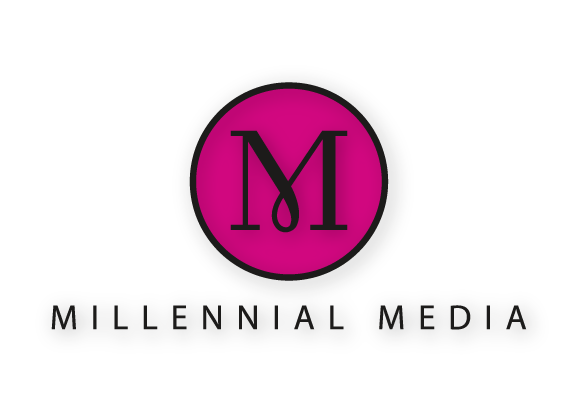Ten Tips for Researching Your Book
by Mica Olinghouse
Disclosure: This page contains affiliate links. If you click through and purchase a product, we will earn a commission at no additional cost to you.
A few years ago, I had the opportunity to lead a writer’s group at my church. I thought you would enjoy gleaning a few nuggets from one of the blog topics we had covered during that time… Enjoy!
You have a great idea for a book and are passionate about the story or message. But how do you narrate your backstory, find facts, and organize the storyline? Is it really necessary to spend countless hours researching a myriad of details before writing a compelling and accurate piece? Can't you just wing it and write entertaining copy from sheer talent and enthusiasm?
As much as you may like to write your story off the cuff, it is imperative to deliberately and thoroughly research your material before plunging into writing mode. In fact, one of the greatest secrets to accurate, excellent writing is preparation through research.
Although there are many different elements involved in conducting quality research, I have listed ten of the most important tips to consider when locating and preparing writing material. I trust these guidelines will help you understand the greater scope of the writing process and will aid you in all your writing endeavors.
1. use wikipedia as a starting place only
While Wikipedia is a fantastic place to go for on-demand information, it is not the ideal resource for accuracy. Since Wikipedia is created mostly by volunteers, it is not considered a professional source. For better accuracy, check the cited sources at the bottom of the entry and then work your way towards locating those cited sources. (Some may be available online while others will need to be checked out from a library.)
2. KEEP AN IDEA JOURNAL ON YOU AT ALL TIMES
Idea journals are easily accessible notebooks that you can put in your purse, book bag, office desk, or nightstand drawer. Whenever you discover a new fact or pertinent information regarding your story, write it down in your idea journal. These are also useful for recording interviews, research notes, ideas, questions, and statistics.
RELATED: DISCOVERING YOUR WRITING VOICE
3. DEVELOP AN ORGANIZATIONAL SYSTEM FOR YOUR RESEARCH MATERIAL
Depending on your personality and style, you may want to keep a digital or analog record-keeping system. Whatever system you choose--index cards, notebooks, binders, or computer files--make sure you keep it organized and easily accessible throughout your research.
RELATED: HOW TO ORGANIZE YOUR WRITING
4. MAKE USE OF TECHNOLOGY
There are tons of writing and productivity apps and programs available today that can be easily downloaded to any of your devices and synced to the cloud. My personal favorite is Evernote, a free note-taking system that I have installed on my PC, Macbook, iPhone, and iPad. Since this program is basically with me every where I go, I can just simply record any information I discover on the fly.
5. PROPERLY DOCUMENT ANY CITED SOURCES
This may be a no brainer, but this simple rule is often overlooked and greatly regretted by many writers. Whatever sources you find and want to remember, be sure to write down the title, author, publishing house and location, copyright date, and page number. If you use this source as a cited reference in a text, chances are you will need to include all the source info in your footnotes or bibliography.
6. CONDUCT INTERVIEWS WITH PEOPLE WHO HAVE EXPERIENCE OR KNOWLEDGE ABOUT YOUR TOPIC
No matter what you're writing, getting a first-hand perspective from a participant is the secret sauce to great writing. As you research, look for individuals who can add value to your story and schedule interviews with them. Ask great questions and record their responses with a digital recorder. This will be a huge asset when you're looking for that one special quote that will set your research--and your writing--apart from the crowd.
7. BE ON LOCATION
To get a better feel for your subject matter or audience, consider taking a field trip to a location meaningful to your story. Take note of the people and setting around you and absorb everything through your senses. Record what you see and hear in your idea journals. This may prompt some great writing once you're ready to begin your piece.
8. COMPARE AND CONTRAST SIMILAR WORKS
Before you begin writing your masterpiece, research the market. Know what other books are out there, who writes them, and how they are different or similar to what you envision for your book. How will your book stand out from the crowd?
9. KNOW YOUR AUDIENCE
Identifying and communicating effectively with your audience is crucial to any successful writing. Before you begin writing, do your homework and know how your audience thinks and acts. Does your subject matter interest them, and how can you make it more appealing to their specific tastes?
10. KNOW THE PUBLISHER’S MARKET
Finally, it's important for you to get a pulse on the publishing market. Is there a demand for your message or story? Will you self-publish or seek a traditional publisher? Are you ready for the time and expense involved in publishing a book?
By now, I hope you're beginning to understand that the writing process begins way before you ever put pen to paper. If you're committed to writing with excellence, then thoroughly researching your material will become an exhilarating journey instead of an excruciating experience. As you learn to appreciate the details involved in the story and pledge yourself to accuracy, your writing will begin to reflect the steady diligence and respectability of a solid, mature writer.
Do you need help with your manuscript?
Love it? Share it!
Recommended Reading
LOVE THIS ARTICLE?
Don’t Miss Out on Professional Tips & Secrets!
Get the Fusion Blog delivered straight to your inbox.






